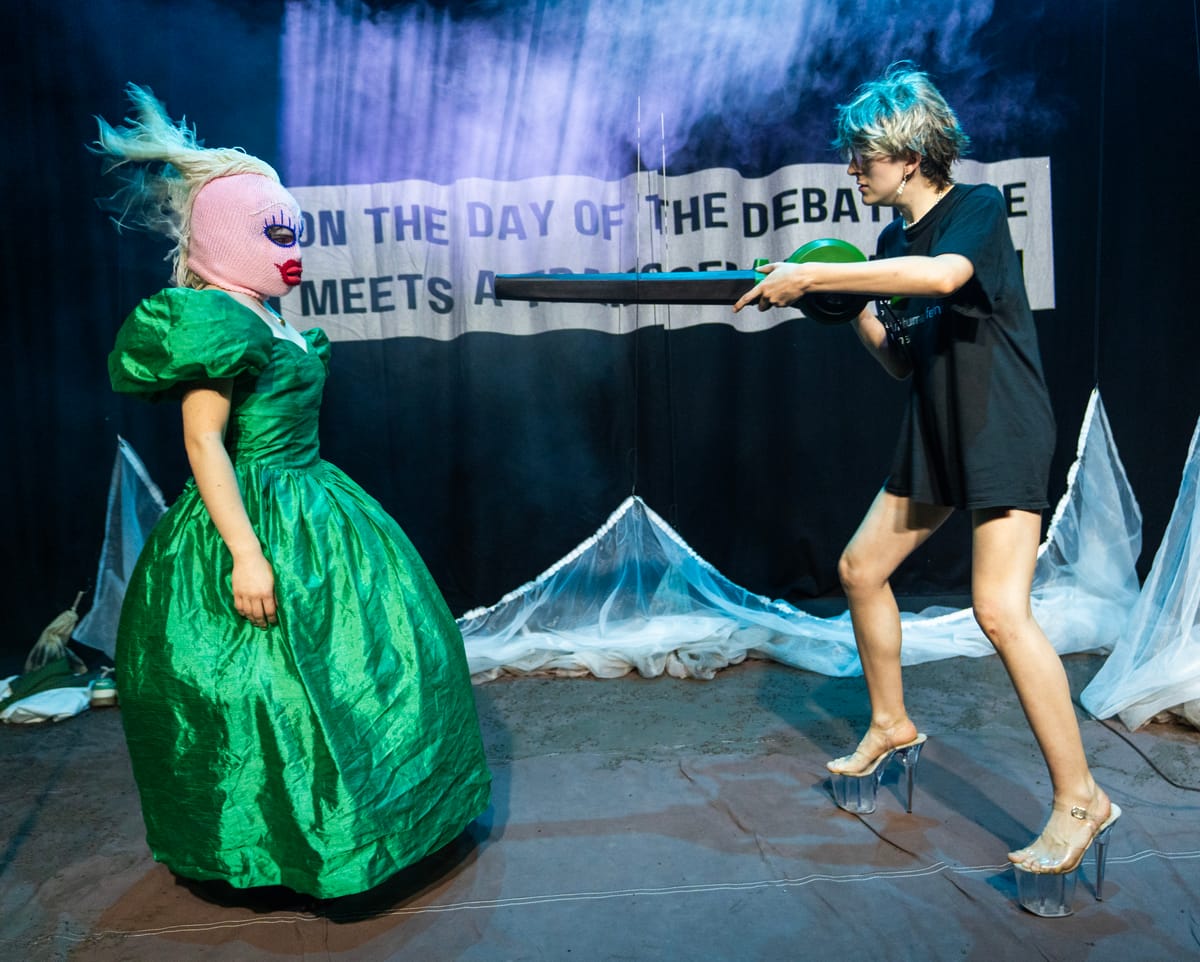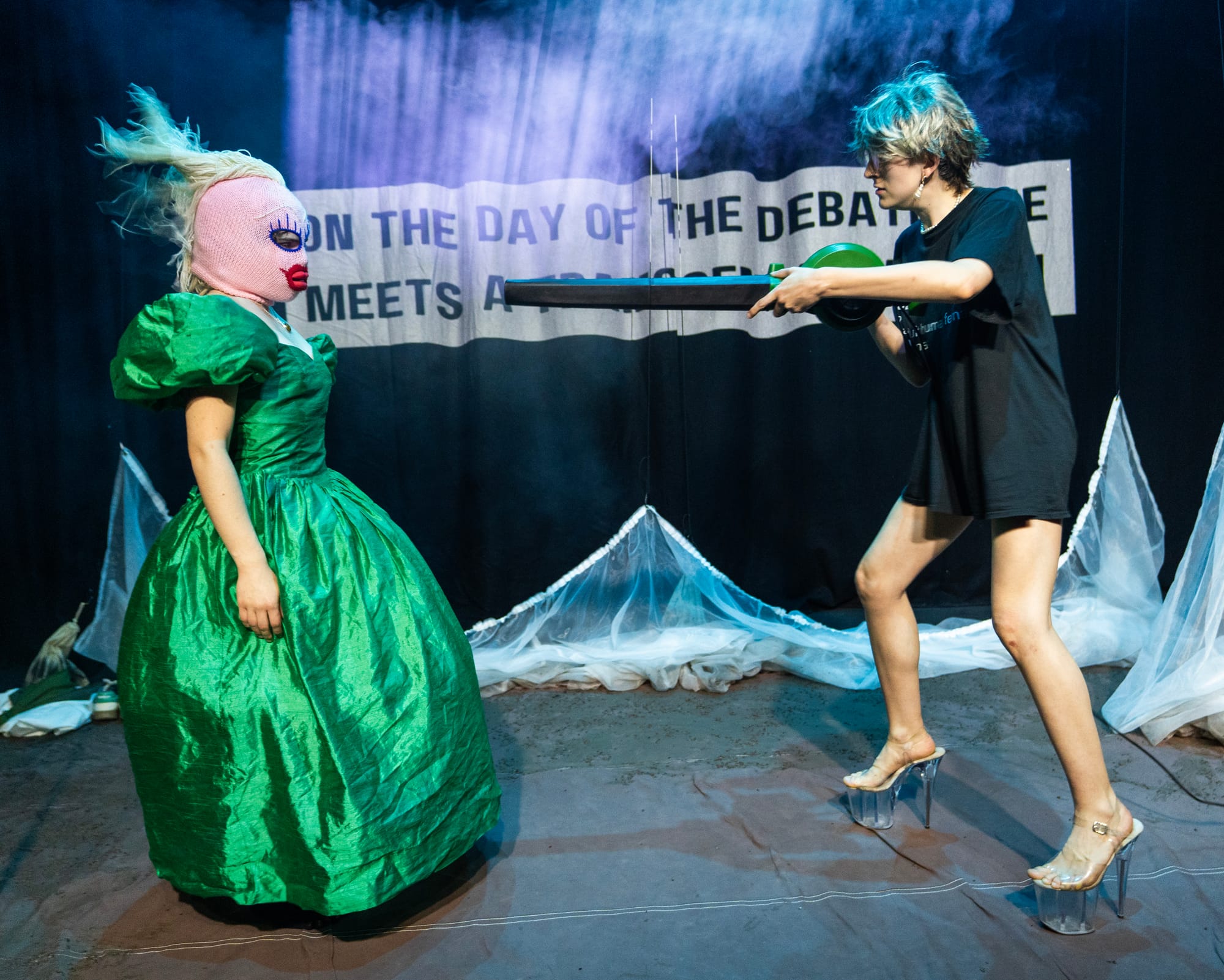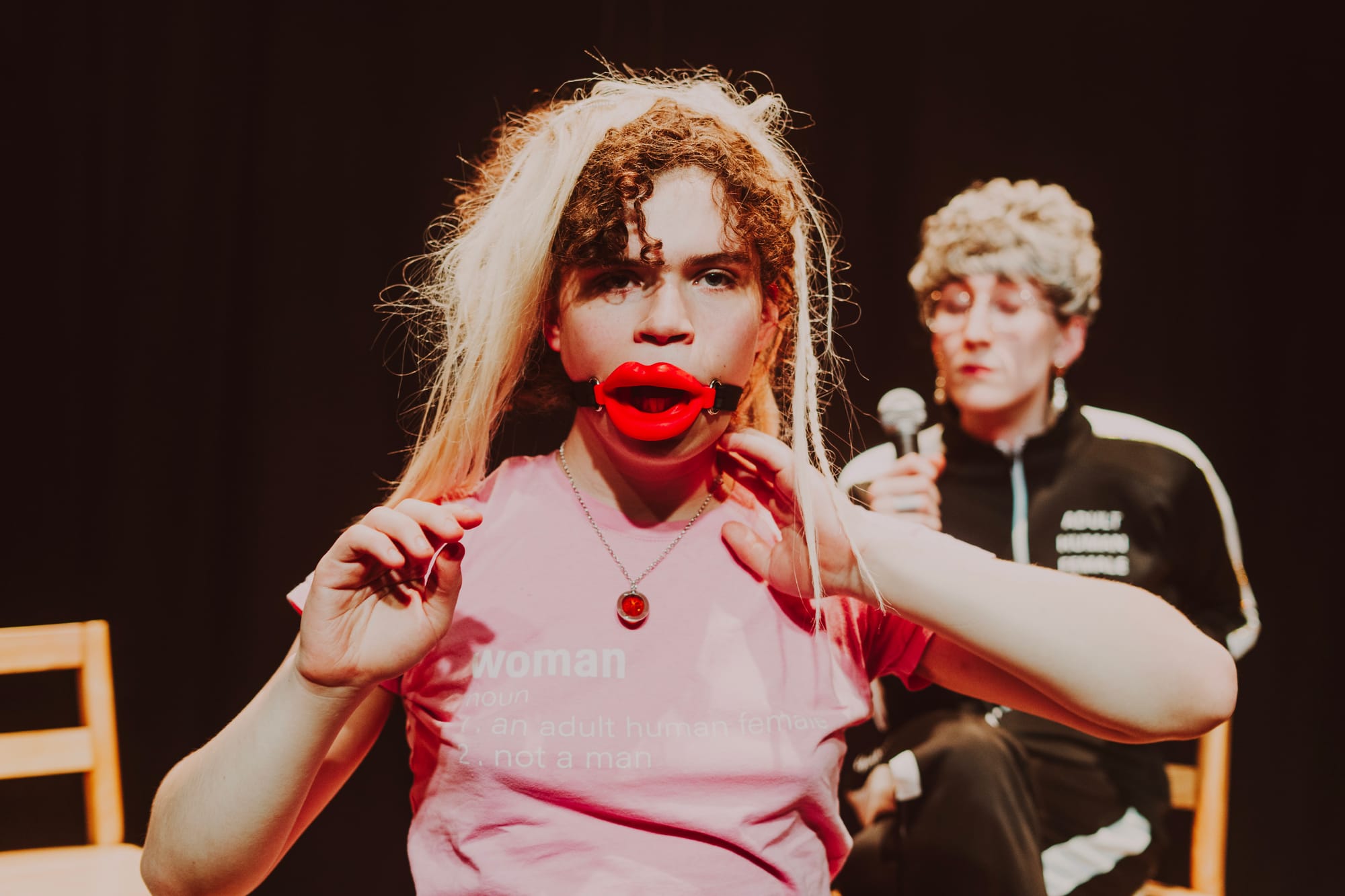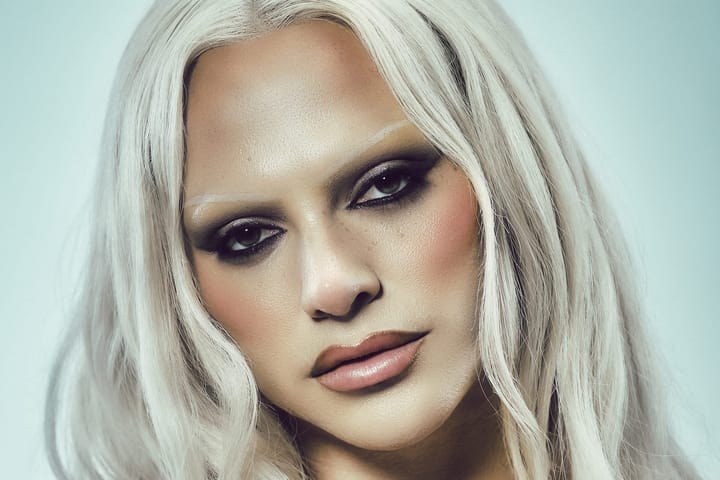Wrestling with Giants: Piss/CARNATION's Ugly Sisters
To experience this piece is the point—it's theatre that asks us to sit with difficulty, laugh at power, and find empathy even for those who would deny our humanity. Such artistic sophistication feels essential in times like these.

In our current political climate, where trans voices face increasing hostility, Ugly Sisters is vibrant artistic resistance. Created and performed by Charli Cowgill and Laurie Ward, this Piss/CARNATION production demonstrates a sophisticated queer approach to engaging with contradiction—choosing empathy over attack, complexity over simple answers.
The production grapples with a painful paradox: what happens when someone who gives you language for liberation simultaneously denies your existence? Ugly Sisters takes its emotional starting point from a moment when Germaine Greer's The Female Eunuch was first published in America, and a trans woman approached Greer to thank her for all she'd done "for us girls." The devastating irony crystallises the work's central tension—how Greer, who wielded her own outsider status to dismantle patriarchal power structures, would later use that same meeting and her proud analytical ferocity to police the boundaries of womanhood, articulated via a public article which served as a nasty dissection of trans women.
This production refuses to take the easy route. Rather than attacking Greer's transphobic positions, Cowgill and Ward embrace the unsightly, the broken, and the powerful in a fluid exploration that shows Greer more empathy than she has extended to the trans community. Using Greer's own words as their analytical tool, both performers glitter with the confidence of artists who completely possess their space.

The theatrical approach creates space for both laughter and serious reflection. Extracts from that gasp-worthy article are read aloud, while Greer's accidental operatic murder and inevitable resurrection are played for laughs. A book festival Q&A becomes a vehicle for examining how Greer's verbose pretentions reveal her own need to be seen. The modern uniform of Greer's intellectual descendants—that "adult human female" T-shirt and its iterations—appears with delicious cutting costume detail that lets the audience fill in the gaps.
The production's has many moving moments, one comes in a tender love scene where the pair tussle, become one, and reverse roles. Here, performance and need, desire and pleasure are viewed through an unabashedly queer lens, with human agency beautifully subverted by passion and raw desire. The post-climactic deflation—that tender, awkward moment when bodies disentangle and minds resurface from desire's fog—becomes a shared recognition between performers and audience. There's something beautifully queer about how passion's aftermath strips away pretense, leaving us vulnerable in ways that feel both intimate and absurd. The laughter here isn't cruel; it's communal, acknowledging how we all stumble through the sobering return to ordinary consciousness after extraordinary connection.
Drawing on trans and queer theory, Ugly Sisters explores the complex dynamics of seeking acknowledgment from our intellectual heroes—the yearning to be truly understood rather than merely observed, and how a moment of recognition can carry the seductive illusion of complete comprehension.

This is theatre as happening, experimental but with clear purpose. Mild compared to the pair's previous 52 Monologues for Young Transsexuals, it still packs a powerful punch through its distilled trust with the audience, creating a space of visceral impact. In this deconstructed retelling, Cowgill and Ward refuse simple answers, offering instead the more difficult gift of nuanced engagement with our most complicated relationships.
Ugly Sisters thrilled last year's Edinburgh Fringe and is currently running at Soho Theatre's Upstairs space. To experience this piece is the point—it's theatre that asks us to sit with difficulty, laugh at power, and find empathy even for those who would deny our humanity. Such artistic sophistication feels essential in times like these.





Comments ()